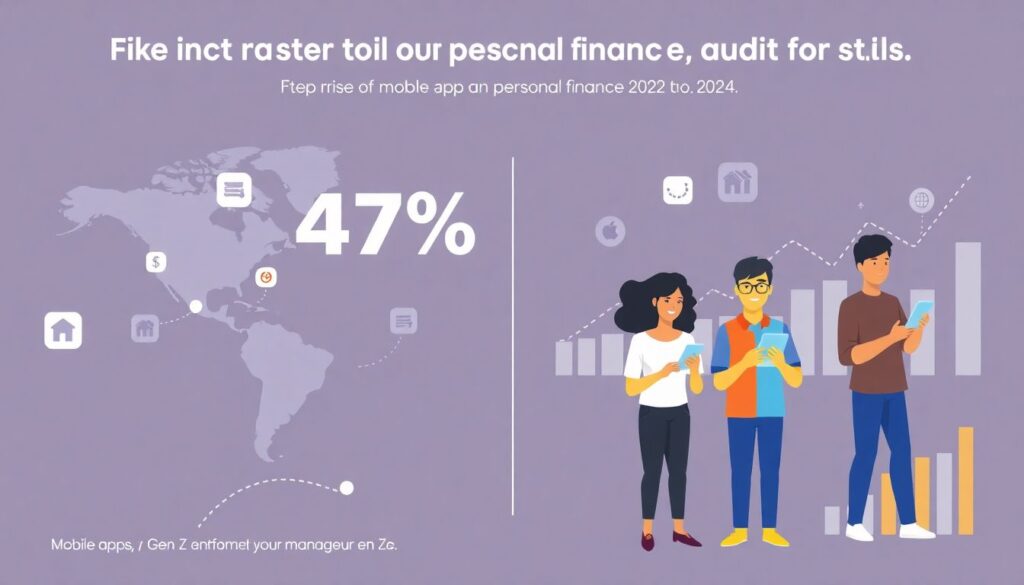Understanding the Importance of a Financial Audit

In the modern economic landscape, conducting a personal financial audit is no longer a luxury but a necessity. Over the past three years, financial awareness has surged significantly. According to a 2024 report by the Federal Reserve, 64% of Americans reviewed their personal finances at least once in the past year, up from 51% in 2022. This trend underscores the growing need for individuals to understand how to perform a financial audit to maintain control over their economic well-being. A financial audit provides clarity on spending habits, debt levels, and savings—critical elements in achieving long-term financial stability.
How to Perform a Financial Audit: A Step-by-Step Approach
Performing a DIY financial audit doesn’t require an accounting degree or expensive software. It begins with gathering all financial documents, including bank statements, loan agreements, and investment reports. Next, categorize expenses and income, then compare them over a 12-month period. This process forms the core of any effective financial audit checklist. According to data from Mintel’s 2023 Personal Finance Report, individuals who conducted a simple audit every six months were 38% more likely to meet their savings goals compared to those who didn’t audit their finances at all. This suggests that even a basic review can yield measurable benefits.
Statistical Trends and Behavioral Shifts

From 2022 to 2024, there has been a notable shift in how people manage their money. The use of personal finance audit tools increased by 47% globally, according to Statista. This surge is driven by the proliferation of mobile apps and platforms that simplify the audit process. Millennials and Gen Z, in particular, are leading this change: over 70% of users of these tools are under 40. This demographic shift indicates a growing comfort with digital solutions and a proactive approach to financial management. As a result, financial audit services are evolving rapidly to incorporate AI-driven analytics and personalized advice.
Economic Implications of Personal Financial Audits
On a macroeconomic level, widespread adoption of personal audits can contribute to greater financial resilience. When individuals are financially literate and audit-savvy, they are less likely to default on loans, more likely to invest wisely, and better prepared for economic downturns. The U.S. Bureau of Economic Analysis reported that in 2023, households that regularly used financial audit checklist practices had 22% higher emergency savings compared to the national average. This buffer not only protects individuals but also stabilizes consumer behavior during recessions, reducing the volatility of economic cycles.
Forecasting the Future of Financial Self-Auditing

Looking ahead to 2026 and beyond, the financial audit landscape is expected to become increasingly automated and personalized. AI-driven personal finance audit tools will likely dominate the market, offering real-time insights and predictive analytics. A 2024 Deloitte forecast suggests that the global market for financial audit services—both personal and corporate—will grow by 11% annually, reaching $75 billion by 2027. This growth reflects not only corporate demand but also increasing individual adoption. As financial ecosystems become more complex, the ability to conduct a streamlined, accurate audit will be a critical skill for financial independence.
Impact on the Financial Services Industry
The rise of DIY financial audit practices is reshaping the financial services industry. Traditional financial advisors are adapting by offering hybrid models that combine human expertise with digital tools. Meanwhile, fintech companies are capitalizing on the demand for intuitive, user-friendly platforms. This shift has led to increased competition and innovation in financial audit services. According to PwC’s 2024 Fintech Outlook, 58% of financial firms are investing in automated audit technology to stay relevant. Consequently, consumers now have access to more affordable, efficient, and transparent audit solutions than ever before.
Conclusion
Creating a simple financial audit for your money is a powerful step toward financial empowerment. With the right tools and a structured approach, individuals can gain a clear picture of their financial health, make informed decisions, and build resilience against future uncertainties. As technology continues to evolve, and awareness of financial literacy grows, the practice of conducting regular audits will become an integral part of everyday life. Whether through personal finance audit tools or professional financial audit services, the future of money management lies in transparency, accountability, and proactive planning.

